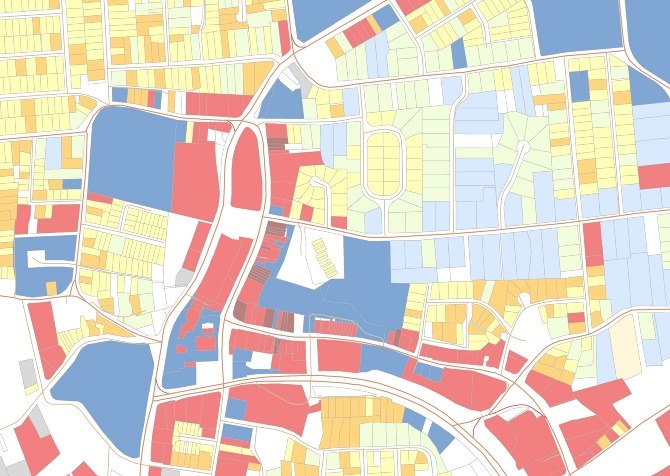#UrbanPlanning
Auto Coalition Joins Forces With NATCO to Rethink City Streets, Share Driving Data
The National Association of City Transportation Officials (NATCO) has joined Ford, Uber and Lyft to work with the data platform SharedStreets to glean a better understanding of America’s infrastructure. Their collective goal is to “make it easier for the private sector to work with cities around the world and leverage data to improve urban mobility.”
That means different things to different companies. For Uber and Lyft, aggregate data on passenger pickups and drop-offs could be useful in deciding where to deploy their vehicles. The information could also prove helpful in telling city planners how to best manage traffic patterns. Uber also said it would track speeders and what on types of roads people are more apt to drive dangerously.
Thanks To Suburbia, The Car Can Never Be The Next Cigarette
I have two interests that are often in conflict with one another. One is my love of the automobile. The second is urban planning. Recently, I was reading a response piece to the notion that the car will become the next cigarette, or a similar “socially unacceptable vice”. Derek Kreindler wrote the following in his response:
Europe: Silly Americans, Cities Are For Pedestrians
From its very first paragraph, a recent New York Times article trolls hard for defenders of America’s car-centric culture:
While American cities are synchronizing green lights to improve traffic flow and offering apps to help drivers find parking, many European cities are doing the opposite: creating environments openly hostile to cars. The methods vary, but the mission is clear — to make car use expensive and just plain miserable enough to tilt drivers toward more environmentally friendly modes of transportation.
Does that not have your red American blood boiling? Stand by for some technocratic condescension from a Euro-crat
“In the United States, there has been much more of a tendency to adapt cities to accommodate driving,” said Peder Jensen, head of the Energy and Transport Group at the European Environment Agency. “Here there has been more movement to make cities more livable for people, to get cities relatively free of cars.”
Though the piece continues generally in this vein, the NYT has blessedly decided that there is “Room For Debate” on this issue, and has posted a number of diverging perspectives on it. Urban planning is a notoriously heated topic, accentuating the urban-rural divide as well as the central-planning-versus-absolute-freedom ideological divide, both of which are more pronounced in the US than in Europe. With this in mind, let’s make sure we approach this topic in a respectful, constructive manner. It’s a topic that will inevitably come up again in the future, so let’s take this opportunity to practice discussing it without resorting to ideological name-calling. [HT: David Holzman]

















Recent Comments